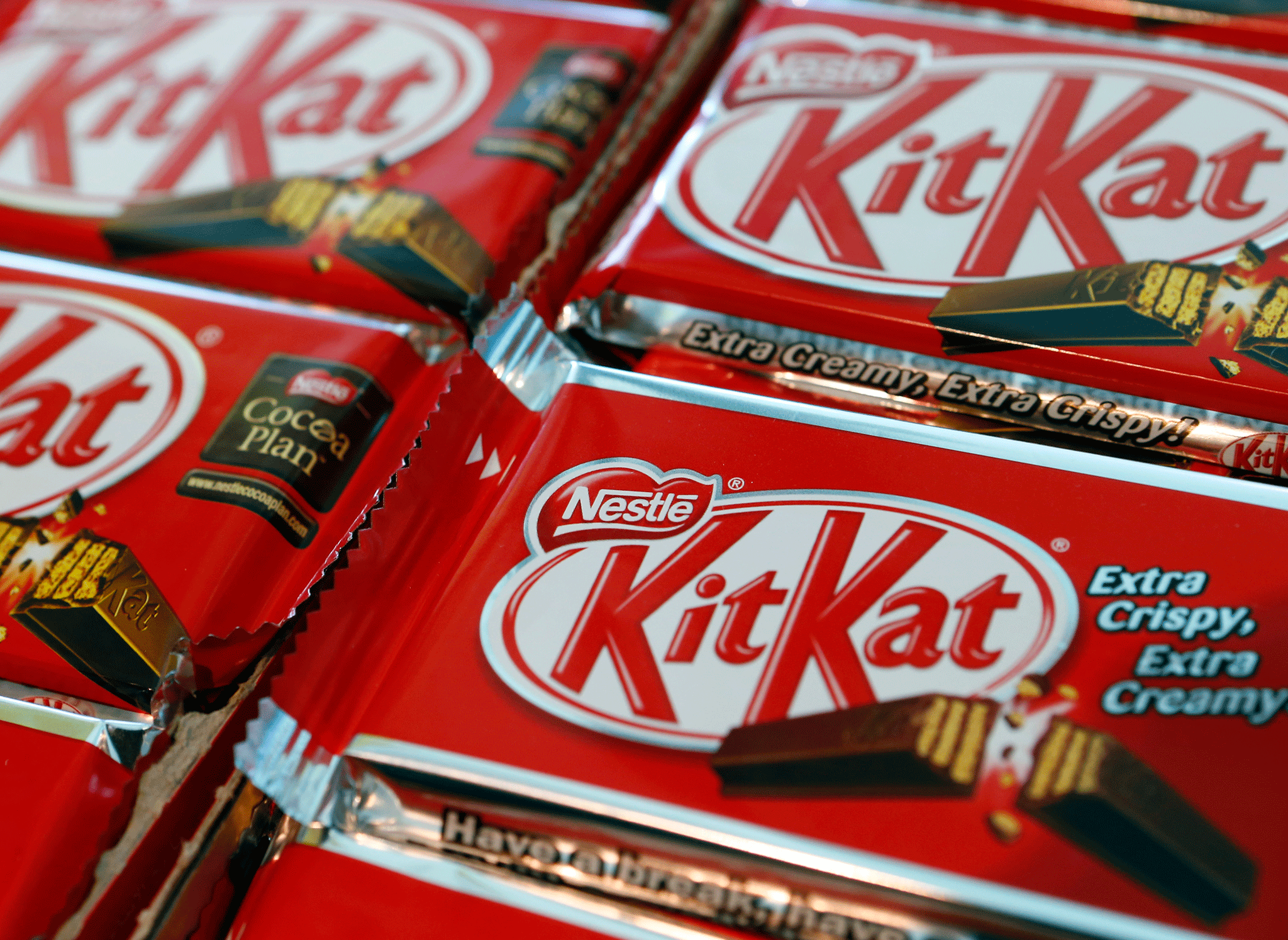Brexit: Nestlé hints at price rises after pound value crash
Maker of KitKat, Nescafe and dozens more household brands is 'considering all options' to cope with the currency's 18% fall

The great Brexit price war could be about to enter round two, after Nestlé said it could follow Unilever and raise its prices in the UK to deal with the collapse in the value of the pound.
Chief executive Paul Bulcke said the Swiss food giant is considering “all options”, including efficiency savings and price rises, as it comes under pressure from soaring costs.
Nestlé, which makes KitKats, Shredded Wheat and dozens more famous brands, also said it would consider its investments in the UK in the light of Brexit but would wait to see what kind of Brexit deal the UK secures before deciding whether to scale back or not.
“Let's first let the dust settle,” Mr Bulcke told a press conference on Thursday, adding that investments in the country were for the long term.
The Swiss food giant cut its annual growth forecast to 3.5 per cent, from 4.2 per cent, dragging its shares down 1.5 per cent in early trading. Sales for the past nine months hit SFr65.5bn (£53.9bn). Nestle shares dropped 1.5 per cent in early trading.
Rising raw material costs have added to Nestlé’s woes. It has already been forced to increase prices in emerging markets such as Brazil, a move that has hit sales.
The news comes as Nestlé’s rival, Unilever, increased prices on all of its products, blaming the collapse in the value of the pound. The hike led to a short-lived dispute with Tesco after the supermarket chain refused to accept the increases, resulting in Marmite and other products being removed from Tesco’s website.
Britain’s retailers and their suppliers have come under increasing pressure from the dual effects of a price war that has held prices down, and an increase in import costs due to the pound’s fall.
Food import prices jumped 10.9 per cent in the year to September, the Office of National Statistics reported this week. The amount must either be absorbed by suppliers through lower profits and efficiency savings or passed on to supermarkets and ultimately consumers.
“Pricing is one of the biggest problems,” Alain Oberhuber, an analyst at MainFirst Bank told Bloomberg. “The problem presents itself in Europe, in Brazil, in the UK. Everything is softer, and they don’t seem to expects things to get much better.”
Join our commenting forum
Join thought-provoking conversations, follow other Independent readers and see their replies
Comments
Bookmark popover
Removed from bookmarks